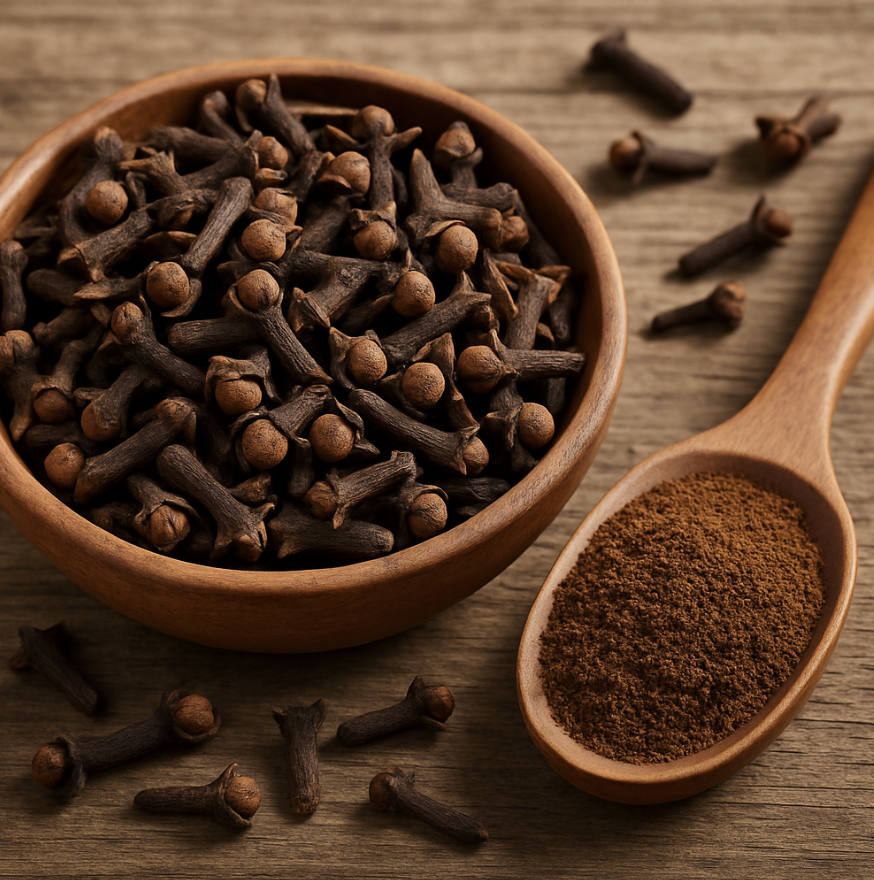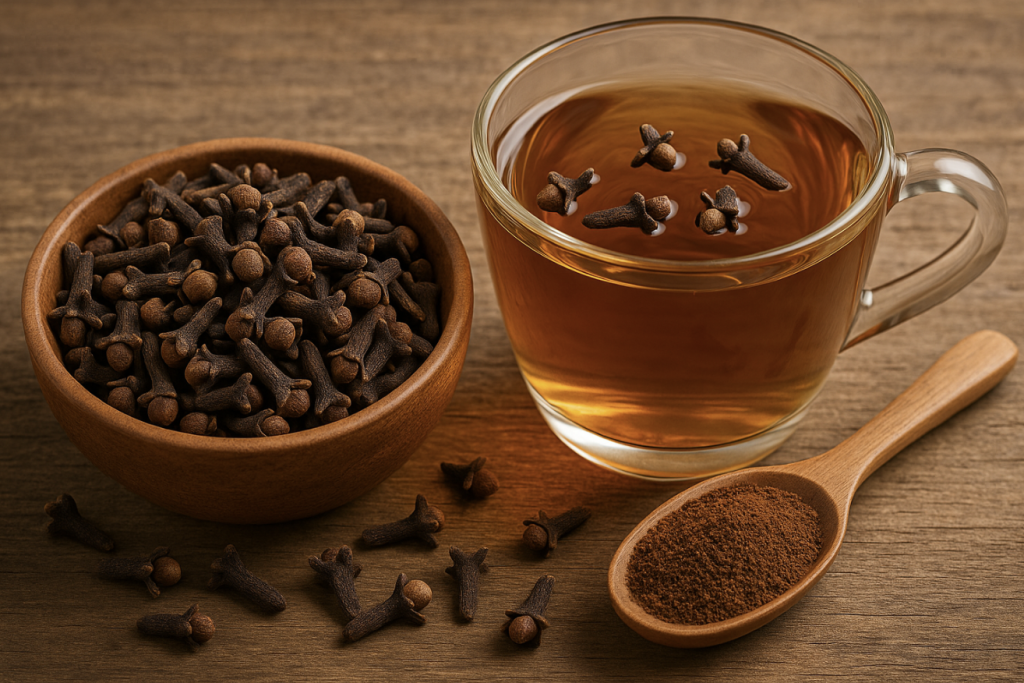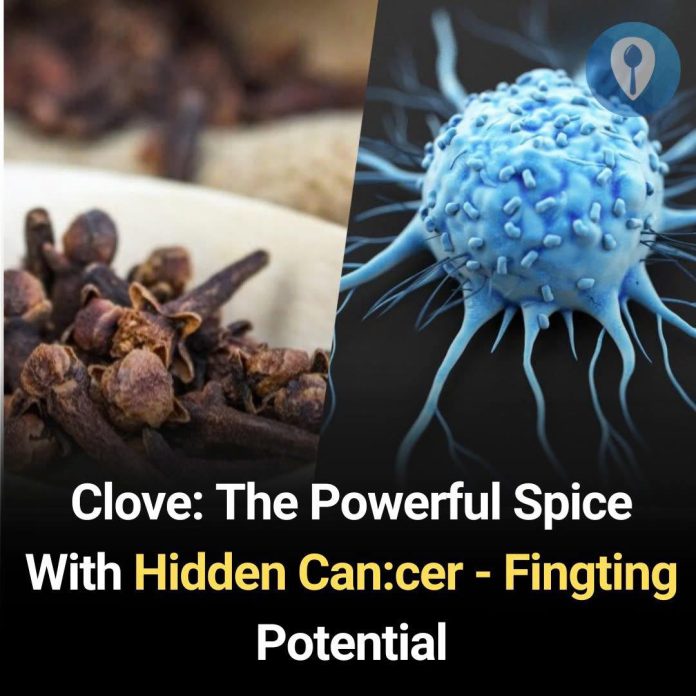Clove is a powerful and aromatic spice with an impressively intriguing potential for supporting health, particularly when it comes to inhibiting the growth of cancer cells. While most people think of cloves solely for their pleasant aroma and flavor in cooking or warm holiday drinks, this dried flower bud contains remarkable compounds that may help the body defend itself against disease—especially more serious conditions like cancer.

Cloves are harvested from the evergreen clove tree, native to Indonesia, but now cultivated in various tropical regions around the world. These deep brown flower buds are harvested just before they bloom and dried until they open, revealing a fragrant, nail-like structure that is instantly recognizable. They contain a diverse mix of natural compounds, including eugenol, gallic acid, flavonoids, and tannins. Among these, eugenol stands out as the most abundant and extensively studied compound in cloves.
Eugenol is known for its intense aroma, but beyond being fragrant, it has shown potent antioxidant and anti-inflammatory properties in laboratory studies. Antioxidants are vital in neutralizing harmful free radicals—unstable molecules that can damage DNA, proteins, and other cellular components. By scavenging free radicals, eugenol protects cells from genetic mutations and other molecular damage that could otherwise promote cancer development.
Even more importantly, eugenol has demonstrated the ability to interfere with multiple stages of the cancer process in experimental settings. In some studies, it has been observed to inhibit the proliferation of cancer cells, meaning it can block or slow the rapid multiplication that defines most tumors. This effect extends to several types of cancer cells, such as breast, colorectal, lung, and prostate cells. In addition, eugenol may trigger apoptosis—a form of programmed cell death—helping the body eliminate damaged or dangerous cells before they can spread.
The spice is also rich in flavonoids and polyphenols, like gallic acid and various tannins. These compounds enhance the antioxidant and anti-inflammatory effects and also contribute to regulating cell signaling pathways. For example, they may influence gene expression and interfere with pathways that support cancer cell survival and spread. In essence, these compounds don’t just protect cells—they communicate with them in ways that promote balance and control.
Another remarkable quality of cloves is their ability to modulate inflammation. While inflammation is a natural defense mechanism, chronic inflammation is associated with the development and progression of many cancers. Clove compounds can help restore balance by reducing inflammatory markers and enzymes that promote tissue damage. This dual action—blunting inflammation and bolstering antioxidant defenses—creates a cellular environment less friendly to tumor growth.
Incorporating cloves into daily routines is simple and versatile. Ground cloves or whole buds can be added to teas, smoothies, baked goods, curries, sauces, and marinades. Just a pinch can deliver noticeable flavor and aroma. For those who prefer more convenient options, clove capsules or tablets are available—but for many health-conscious folks, using the spice in cooking is an easy and enjoyable way to benefit.
That said, it’s important to keep in mind that most potential anti-cancer effects of cloves come from test-tube and animal studies. Human studies are still limited. While cloves are generally safe in normal culinary amounts, consuming extremely high doses—especially in concentrated essential oils—can cause side effects such as mouth or throat irritation, allergic reactions, or digestive upset. In rare cases, excessive intake of clove oil may cause liver toxicity or interfere with certain medications (like blood thinners). As always, it’s wise to speak with a healthcare provider before taking large doses, especially if you are pregnant, breastfeeding, on medications, or have underlying health conditions.

That said, incorporating cloves into a balanced diet—alongside plenty of vegetables, fruits, whole grains, legumes, lean proteins, and healthy fats—can be an easy, flavorful, and health-conscious way to support overall wellbeing. Alongside other lifestyle practices like regular exercise, stress management, and avoiding tobacco or excess alcohol, cloves can be a pleasant piece of a cancer-conscious lifestyle.
In summary, cloves are more than just a warming spice—they belong to a class of foods often dubbed “nutraceuticals” or “functional foods,” recognized for their potential therapeutic benefits. Thanks largely to eugenol and an array of antioxidants and anti-inflammatory compounds, cloves show great promise for protecting cells, combating harmful inflammation, and even supporting where cancer cells start to develop or grow. While they are no cure-all, adding cloves thoughtfully and regularly to cooking or drinks can offer a delicious and healthful strategy—not just for enjoying flavor, but possibly for helping your body’s natural defenses.

















